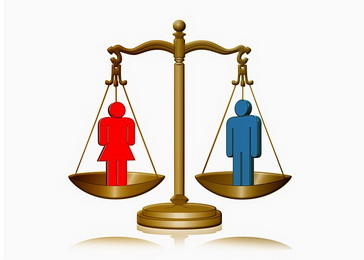 Given that the average hourly rate of women in Europe is 16.3% lower than men’s, European women will actually work for free from November 3 until the end of the year. The European Commission strongly condemned this injustice and announced an action plan against unequal pay of women and men. At the same time, the latest global research warns that women around the world will need more than two centuries to achieve equality in the workplace.
Given that the average hourly rate of women in Europe is 16.3% lower than men’s, European women will actually work for free from November 3 until the end of the year. The European Commission strongly condemned this injustice and announced an action plan against unequal pay of women and men. At the same time, the latest global research warns that women around the world will need more than two centuries to achieve equality in the workplace.
Although women in the EU are equally or even more educated than men, this is not reflected in the labour market. In 2016, 33% of women and 29% of men in the EU had completed tertiary education. At the same time, employment rate of women compared to men was lower by 11,6 percent.
The new World Economic Forum (WEF) research also warns that world-wide, women will need more than two centuries to achieve equality in the workplace.
The research shows that it will take another 217 years to counter the pay disparity and employment opportunities between men and women. The same research conducted in 2016 estimated that 170 years will be needed to close the gap.
WEF has been publishing the Global Gender Equality Index since 2006 and the latest one, released on November 1, is the first one in which “slow but steady progress” towards the equality of women and men was reported as stalled.
Closing the gender gap, particularly in the economic sphere, would not only greatly contribute to the social sphere, but could also, according to WEF, bring economies a boost in billions of dollars.
In the research covering 144 countries, the gap between men and women was calculated based on indicators in economics, health, education and politics.
Iceland ranked first by gender equality index, having removed 88% of the gap between men and women. The country has sustained its top ranking for nine years now. Norway and Finland followed in the second and third position, while Rwanda ranked forth and Sweden fifth. Yemen was at the very bottom of the list.
In the latest report, Serbia’s gender equality ranking was 44 out of 144 countries. The country’s rating by economic equality criteria was 72, while according to equality in health, it shared the global top position with several other countries, ranking 47th in the domain of education and 38th by political empowerment or participation of women in politics.
Source: EURACTIV.rs
 Government of the Republic of Serbia
Government of the Republic of Serbia















 pdf [271 KB]
pdf [271 KB]
Leave a Comment